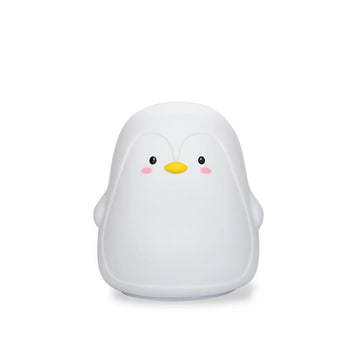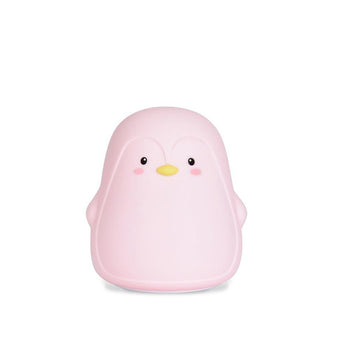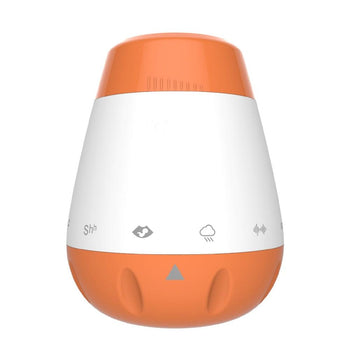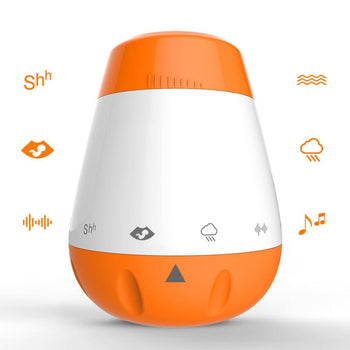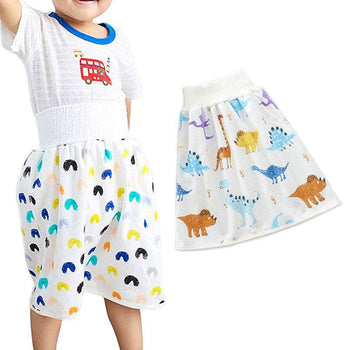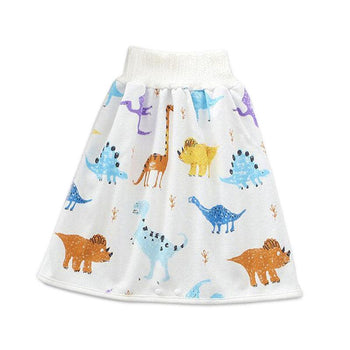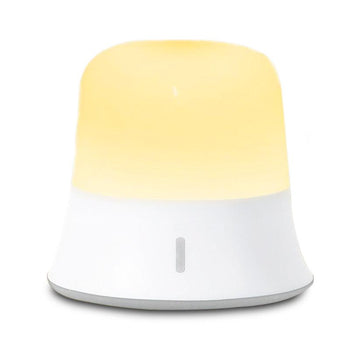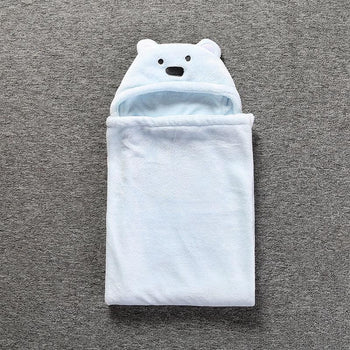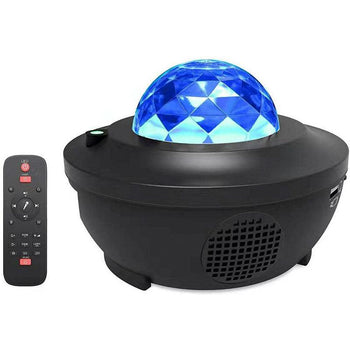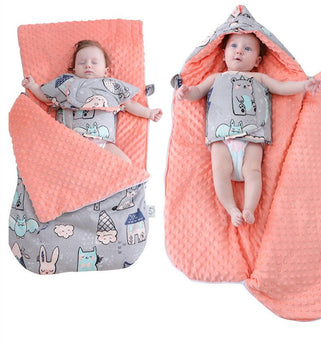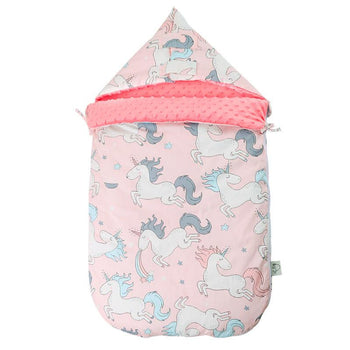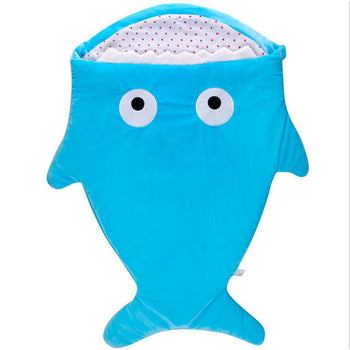The key to calming a crying baby is understanding what is causing the tears in the first place. In this article, I'll tell you the 11 (most common) reasons babies cry.
When it comes to babies, there are few absolutes. After all, no two babies are the same, and what works for one may not work for another. But all babies have one thing in common, and that's a tendency to cry . The extent of this little crying will of course vary from child to child, but most new parents can expect to manage one to three hours of baby crying daily.
For what ?
Because it's the only way for the baby to communicate his needs and wants. There may not be a Google Translate option yet to help us understand what a crying baby is trying to tell us, but there are common reasons why babies cry. Read on to learn how to decipher a baby's cry, as well as some helpful tips for soothing those tears.
Why do babies cry at night, in their sleep or even all the time? Here are 11 reasons:
If you have a crying baby on your hands, chances are he's trying to tell you he needs something. From an evolutionary perspective, the descendants of mammals cry to signal to their parents that they need immediate attention. Here, I've identified 11 of the most common reasons babies cry, along with some strategies for calming a crying baby.
1. Baby is hungry
Everyone is a little grumpy when hungry, especially babies: They can go from scratching to crying pretty quickly if they haven't eaten in a while. You may recognize the "feed me" cry as being rhythmic and repetitive and (usually) short and low pitched. Baby hunger cries can also include a "neh" sound, experts say, which comes from the baby's tongue reflexively hitting the palate in search of milk.
The key to feedings is not to watch the clock, but to respond to baby's cues. When a baby cries, it shows a late sign of hunger. To prevent the baby from crying from hunger, look for early signs that he is ready for a meal: lip smacking, sucking on his hands or nosing around (i.e. turning his head to find the breast or bottle).
2. Your infant needs attention
We all know that babies don't exactly operate on a "set it and forget it" method. You can (and should!) place your baby on a play mat or in a swing. But your child will be happier and calmer when he is with you.
Babies often cry of loneliness because you don't hold them or rock them constantly. They need these things as they go through this period of rapid development. Young babies should be cared for with empathy and quickly so that their system learns to be calm instead of being restless.
3. Your little one has a dirty diaper
Some babies can sit in a wet or dirty diaper for hours without being noticed. Others go crazy if they are uncomfortable for more than a second. (Can you really blame them?) Take a second to open the diaper and do a quick check or "sniff test" .
You can also opt for a diaper brand that has a wetness indicator, such as Pampers Swaddlers, which change color when the diaper is wet. So you don't have to undress your child every time you need to check if the baby's crying is due to diaper discomfort.
4. Belly troubles
Does your crying baby also squirm, arch their back or pump their legs? These are telltale signs of baby gas . The good news is that there's an easy way to help them pass. Hold the baby on the left side or on the stomach to aid digestion. If the baby has gas, have him cycle with his legs and push him towards the chest to help him release the gas.
5. Your baby's teething
Baby can start teething as early as 4 months old, and when the pain sets in, baby crying is virtually guaranteed. Other signs of teething are excessive drooling and gnawing on anything within reach. Sucking on a pacifier, thumb, or finger can help soothe the baby.
You can even give your crying baby a gum massage . Simply massage the gums until your finger makes a grinding noise. Chewing on frozen or refrigerated teethers, washcloths, or even cotton bibs can also provide relief to baby.
Although it may be tempting, avoid over-the-counter teething products. These benzocaine products can numb the back of the throat and impair the baby's ability to swallow. The same goes for homeopathic remedies, such as teething tablets. When it comes to soothing a crying baby's teething pain, natural relief is best , unless the baby is really unhappy. In this case, consult your pediatrician to prescribe appropriate medication.
6. Baby needs to burp
If you notice the baby cries right after being fed , this is a classic sign that he needs to be burped. But there are other times when a good burp may be necessary. Everyone thinks of burping their baby after feeding, but many babies need a burp after sucking on a pacifier, hiccuping or crying.
All of these activities can result in the ingestion of air. So when you have a baby who cries inexplicably , it doesn't hurt to pat him on the back. There are several techniques for burping a baby, so find the one that's right for you.
"I hold my baby over my left shoulder, making sure his left arm hangs over my shoulder," Alicia, one of our members, tells us. "Then I rub him in circles on his left side and back, starting at his hip and working up. Usually after two or three tries he gives us a massive burp."
7. Your child's sleepiness
As an exhausted parent, you may be able to fall asleep as soon as you hit the mattress, but the same isn't necessarily true for a baby. Sleep is a learned skill , just like anything else. Newborns do not have an established circadian rhythm until about 4 months old. Because of this, a crying baby is unable to soothe himself, and so parents should help the baby establish these things.
To help reduce babies' crying at night and soothe them while they sleep, it's likely to take a bit of trial and error to see what calms your tired baby best. Swaddling , for starters, can make your little one comfortable. Some babies respond equally well to rocking, the sound of a lullaby, or even the hum of the vacuum cleaner.
If baby cries at night and wakes frequently, you might be tempted to cut back on daytime sleep, thinking fewer afternoon naps will help baby sleep better at night, but that's not the case. When the baby is too tired, his body produces hormones that give him a second wind, which makes it harder for him to fall asleep and stay asleep. Even if it's not baby's usual nap, if he seems tired, go ahead and put him down, he'll fall asleep.
8. Overstimulating Your Baby
We all deal with sensory overload from time to time. For babies, it could be because they hugged aunts and uncles at a family party or just went to the grocery store.
Remember: your little one is still getting used to all the fuss, so it doesn't take much to upset him. It's a good idea to bring a crying baby home and relax him when he seems overstimulated. Going for a walk and getting some fresh air in a quiet, familiar setting can also do him good.
But don't go overboard in trying to keep baby away from sensory activities. Stimulation is good, and the best form of stimulation for babies is one-to-one stimulation with a loved one.
9. Your baby may be sick
Nobody likes to be sick and unhappy, including babies. If your little one is feeling sick, you'll probably notice the baby crying more often than usual. Most parents know what normal baby crying sounds like, so if the baby won't stop crying or if the baby cries louder and longer than usual, it could be a sign of illness.
Also check for other symptoms, such as fever, vomiting, lack of weight gain, if the baby is not alert or inconsolable, and bring this to the attention of your pediatrician.
10. Baby is not comfortable
When we have an eyelash stuck in our eye, a hair wrapped around our toe, or a clothing tag that rubs on our skin, we can simply remove it. But a baby has only one way to let you know he's uncomfortable. And you guessed it, it's the crying.
If your child is still unhappy after naps and being fed, burped, and changed, undress your baby and check for itchy tags or other little things that could be bad. Even a shoe that's too tight can cause discomfort, so use your best detective skills.
11. Your baby has colic
Last but not least, colic, also responsible for baby crying, is on the list. Colic is defined by the AAP as a condition in which an apparently healthy infant cries for more than three hours a day, more than three days a week, for more than three consecutive weeks.
Babies with colic cry excessively , are harder to comfort, and have disrupted sleep, which puts a lot of stress on you and your partner. But it's important to remember that colic is usually short-lived .
Also, babies with colic aren't necessarily uncomfortable or in pain, and it doesn't mean you're doing anything wrong. Often, it's just how the baby handles life during those first few months.
I give you 5 tips here , which will help your baby sleep better even during the colic period. Do you know the kangaroo method?
How to calm a crying baby?
The best way to calm a baby's crying is to first find out why he's crying, so you can respond to his needs quickly. Without knowing what's causing the crying, parents often try a bunch of different soothing techniques, but in doing so, they often miss the opportunity to fix the real problem, and the baby's crying escalates. If you still have a crying baby on your arms after checking all the common culprits mentioned above, try the "five S's," general soothing techniques that pediatrician Harvey Karp, assistant professor of pediatrics at the School of medicine from the University of California, described in her book "Happiest Baby on the Block".
Here's a look at how you can stop your baby's crying with these helpful tips and tricks:
- Swaddling. Babies love to be swaddled. It gives them a sense of security and reminds them of their days in the womb. The first step to soothing your crying baby is to wrap her in a snuggly (but not too tight!) swaddle with baby's arms at her side. More details on swaddling here .
- Position on the side or on the belly. Hold the baby on her side or on her stomach over your arm. Both of these positions are comforting for the baby and can help with gas and other tummy issues.
- Hush. Make a gentle shhh sound directly into baby's ear, which is similar to the noises he heard in the womb. Don't be afraid to turn up the volume a bit for a crying baby.
- Swing. Try gently rocking or shaking the baby to calm him down (taking care to always support his head and neck). Babies are accustomed to this kind of movement from birth in utero and may be startled by their immobility shortly after birth.
- Suck. According to Karp, many fussy babies relax deeply when they suck on something. Try breastfeeding or using a pacifier when the baby starts to calm down a bit.
When to let the baby cry?
It is difficult for any parent to hear the crying of the baby, and it is instinctive to want to soothe those tears. But is there a time when it is better to let the baby cry? There really isn't a set answer. Yes, babies can cry a lot, but considering it's their primary means of communication , it's not that surprising. They need to learn the rhythms of life outside of the womb, and they need a lot of help with this by being comforted, cradled, and calmed . They cannot do these things themselves for the first few months.
When it comes to sleep training, whether or not it is okay to let the baby cry, otherwise known as the Ferber method, is a bit controversial. Some critics claim that letting a baby cry can leave emotional scars, but this claim is not supported by science. In fact, a 2016 study showed that letting a baby cry did not cause any stress response and had no long-term effect on the baby's emotional state, outward behavior, or parent-parent bond. child. But every family needs to find a sleep training strategy that works for them.
If you choose to let your baby cry, experts agree that the child should be at least 6 months old, but that doesn't mean your little one can't learn some self-discipline skills in the meantime. It's okay for your baby to fidget a little while you take a quick shower, as long as it's safe.
If your baby won't stop crying and you've reached your limit, you can always put him down somewhere safe, like the crib or the playground, walk away, and take a few minutes to compose yourself. If you feel like you're starting to get frustrated and angry with your crying baby, take a step back and find someone to help you , whether it's your partner, family member, or friend. And remember that, as with all things, this too will pass.
I hope this article has enlightened you on the subject. Feel free to share your experiences with us in the comments.
Do you want your child to sleep every night?
In this free guide , you will discover 5 things you absolutely need to know.







